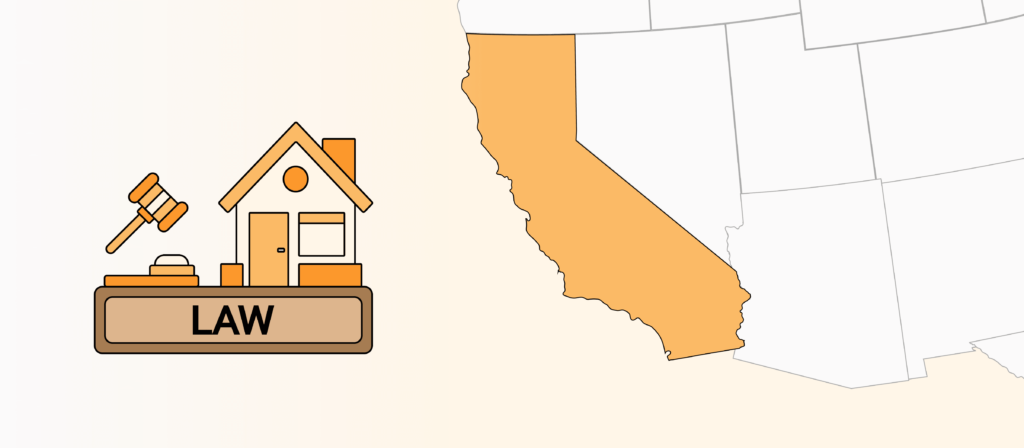California’s reputation as not particularly landlord-friendly primarily stems from its stringent rent control laws and robust tenant protections. These regulations aim to safeguard renters but can create headaches for landlords, particularly in eviction processes and sometimes, can present challenges to landlords planning to sell a rental property.
Understanding and navigating these laws is vital to successful property management. Even if you’re considering selling your rental property with tenants in Los Angeles, knowing these rental property laws and how they apply to your buyer can be beneficial to selling your rental property in California.

California landlord laws that were recently passed can affect many landlords in Los Angeles
SB 567 PASSED: New Rules for Property Owners Planning to Move Into a Rental Property and New Rules for Investors Planning to Tear Down and Rebuild
As of April 1, 2024, SB 567 was enacted into law, which added a significant hurdle to any “no-fault just cause” eviction where the property owner (or the owner’s direct relative) desires to occupy the property or an investor seeks to displace the tenant for a substantial remodel. The law requires that the property owner or family member actually move into the property within 90 days AND continuously occupy the property as their primary residence for at least 12 months. In terms of remodels, SB 567 also requires that investors provide tenants with written notice, which includes a description of the substantial remodel to be completed and the expected duration of the repairs, or the expected date by which the property will be demolished, and a copy of permits required to undertake the substantial remodel or demolition. The law further requires that the remodel or demolition actually be done.
Read more about SB 567: SB 567
AB 12 PASSED: New California Housing Law that Limits Security Deposits on Rentals Goes into Effect
As of July 1, 2024, a new law limits landlords in Los Angeles to require tenants to pay no more than one month’s rent upfront, encompassing all fees and charges. Gone are the days of demanding three or even two times the rent for a lease renewal. Small-scale landlords, with just two properties totaling no more than 4 units, are exempt from this regulation.
Handling Existing Security Deposits
The legislation pertains solely to new security deposits acquired post-July 1, 2024. Any security deposits lawfully secured before the enactment of Assembly Bill 12 are unaffected and can be retained as is.
Regulation on Furnished Properties
This law is applicable to both furnished and unfurnished properties. Previously, there was a three-month security deposit cap for furnished properties, which is now eliminated. The playing field is leveled, treating furnished and unfurnished units equally.
Policy on Pet Deposits
A “pet deposit” falls under the overall deposit limit of one month or any other relevant cap. Essentially, a “pet deposit” functions as a regular deposit but earmarked specifically for pet-related damages. Should you ever need to collect such a deposit, term it as an “additional deposit” to adhere to the prescribed limits. Further insights on this topic will be explored in future posts.
Read more about AB 12: AB 12
SB 267 PASSED: Prohibits Landlords from Checking Credit History of Tenants who Receive Government Rent Subsidies (Section 8)
The law prohibits landlords from considering credit history when evaluating residents for rent-subsidized housing (such as Section 8), without allowing prospective tenants alternate means for proving their ability to pay rent. Alternate options may include government benefit payments, pay records, and bank statements. If the applicant elects to provide alternative evidence of the applicant’s reasonable ability to pay, it would require the landlord to provide the applicant reasonable time to respond with that alternative evidence.
Why the Change? SB 267 aims to address the fact that traditional credit reports can be inaccurate or discriminatory in assessing a subsidized tenant’s true ability to pay rent. Low credit scores may be due to factors beyond a tenant’s control, such as medical debt or past financial hardships.
Read more about SB 267: SB 267
Rental Property Laws Challenging For You?
Fair Sale Homes understands the challenges that California rental property owners face in California. With the new tenant friendly laws introduced annually, landlord cashflows and profits may get impacted even further, creating headaches and financial distress for owners.
Fair Sale Homes is happy to answer all of the questions you have about any new laws introduced or assisting you if you’re considering selling your rental in Los Angeles. Whether you choose to list or sell your house directly, our team can help you! Reach out to us today to learn more about what we can do for you. (626) 863-7006


